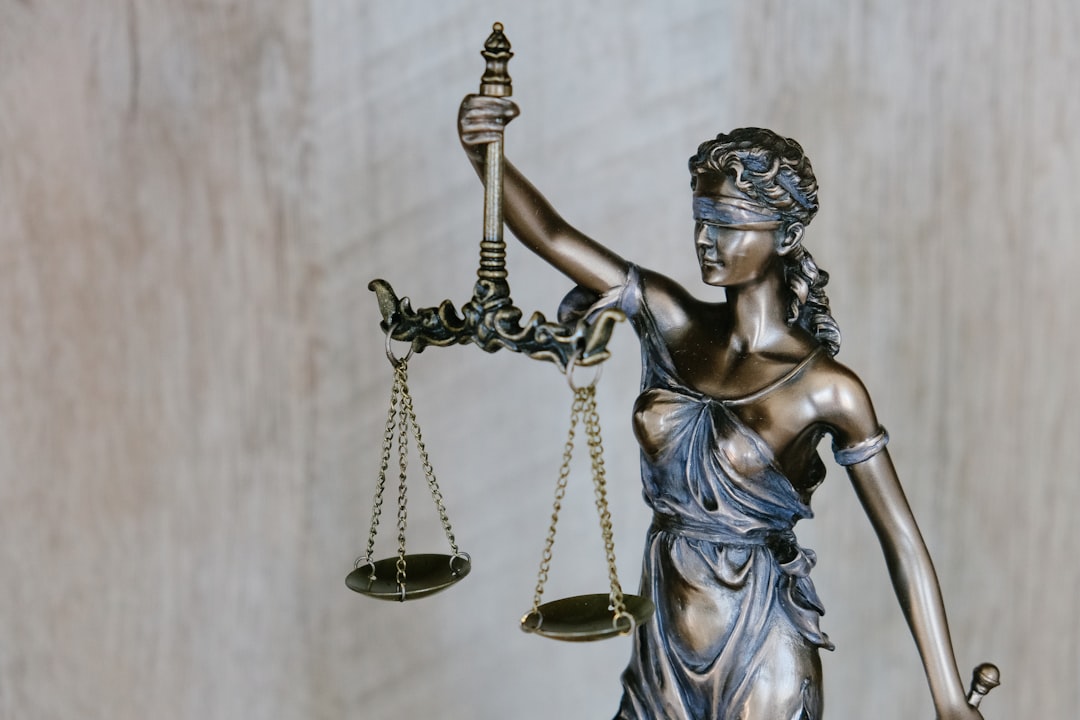Comprehensive sex education in Kansas schools must include nuanced consent and healthy relationship instruction, aligning with legal frameworks. School abuse lawyers Kansas emphasize the importance of teaching students about informed, voluntary consent, boundaries, and the right to withdraw consent. Legal principles integrated into engaging discussions and role-playing activities create safe learning environments. This proactive approach reduces teen pregnancy, sexually transmitted infections, and school abuse by empowering students to respect consent and address abusive behaviors. Collaboration with community organizations and regular curriculum updates are vital. School abuse lawyers Kansas play a critical role in policy development, investigations, and victim advocacy, ensuring safer schools through specialized knowledge and strategies.
In Kansas, the discussion around teaching consent and fostering healthy relationships in schools has become a pressing matter, given the rising concerns over school abuse. As school abuse lawyers Kansas have highlighted, education plays a pivotal role in prevention. The current landscape reveals a gap in comprehensive sexual education, leaving students vulnerable to misunderstandings and abusive situations. This article delves into the significance of integrating consent education and promoting positive relationships within the academic setting. We explore evidence-based strategies that schools can adopt to empower students, reduce risks, and create a safer environment, ultimately serving as a guide for educators and policymakers alike.
Understanding Consent: Legal Framework & Education

Teaching consent and healthy relationships is a critical component of comprehensive sex education, but it requires a nuanced understanding of legal frameworks and societal norms. In Kansas, school abuse lawyers often see cases that underscore the importance of proper instruction in these areas. The legal landscape regarding consent is clear: individuals must provide unambiguous, voluntary, and informed agreement to any sexual activity. However, achieving this in educational settings involves more than just conveying legal terms.
Students need to develop a deep comprehension of consent as a fundamental aspect of respectful relationships. This includes recognizing boundaries, understanding the importance of asking for permission, and comprehending that consent can be withdrawn at any time. For instance, Kansas law defines sexual misconduct to include non-consensual acts, highlighting the state’s commitment to protecting individuals from sexual abuse. Educational programs should integrate these legal principles into engaging discussions, using real-world examples and scenarios to illustrate points. School abuse lawyers in Kansas suggest incorporating role-playing activities and open dialogues to foster a safe environment where students can ask questions and explore complex issues related to consent.
Moreover, addressing power dynamics and the prevention of sexual harassment or assault must be central to these discussions. Students should learn about healthy relationship dynamics, communication strategies, and the impact of words and actions on others. By empowering young people with this knowledge, schools contribute significantly to creating a culture where consent is universally respected, and abusive behaviors are swiftly addressed. This proactive approach not only aligns with legal obligations but also fosters a safer and more supportive learning environment.
Implementing Healthy Relationship Curricula in Kansas Schools

Implementing healthy relationship curricula in Kansas schools is a crucial step towards fostering safe and respectful environments for all students. According to recent studies, comprehensive sex education programs that include consent and healthy relationships can significantly reduce rates of teen pregnancy, sexually transmitted infections, and school abuse. Unfortunately, many Kansas schools lack adequate resources or training to effectively teach these critical topics. This gap in education has profound implications, as young people are at a heightened risk for experiencing relationship violence and sexual assault during their formative years.
To address this challenge, Kansas school districts must prioritize investing in evidence-based curricula designed by experts in the field. These programs should go beyond basic reproductive health information to cover a wide range of topics, such as building healthy relationships, recognizing boundaries, effective communication, and consent. School abuse lawyers Kansas emphasize the importance of educating students about their rights and legal protections related to abuse within romantic or sexual contexts. By integrating these lessons into existing health education classes, schools can create opportunities for open dialogue and dispel myths surrounding consent and healthy relationships.
Practical implementation strategies include collaborating with community organizations, such as local non-profits specializing in teen empowerment and sexual health education. These partnerships can provide additional resources, expert speakers, and specialized training for teachers. Additionally, involving students in the curriculum development process ensures that the content is relevant, engaging, and sensitive to diverse cultural backgrounds. Regular evaluation and updates to the curricula are essential to keeping pace with evolving societal norms and legal protections, ensuring that Kansas schools remain at the forefront of promoting healthy relationships and preventing school abuse.
Preventing & Addressing School Abuse: Roles of Lawyers & Educators

Preventing and addressing school abuse is a multifaceted challenge that requires collaboration between educators and legal professionals. In Kansas, where the importance of establishing healthy relationship dynamics is increasingly recognized, the role of school abuse lawyers Kansas becomes crucial in ensuring student safety and well-being. These legal experts provide guidance on policy development, offer support during investigations, and advocate for victims, contributing to a robust framework aimed at eradicating abusive behaviors.
Educators play a pivotal role in identifying potential red flags—behaviors that might indicate physical, emotional, or sexual abuse within the school setting. They are trained to foster an environment of respect and consent, integrating these values into everyday interactions and curriculum content. However, when faced with suspected abuse, educators may require legal counsel to navigate complex procedures effectively. School abuse lawyers Kansas offer specialized expertise, assisting schools in conducting thorough investigations while ensuring adherence to relevant laws and regulations. This support is vital for maintaining a safe learning environment and protecting the rights of all students.
For instance, a study by the Kansas Department of Education revealed that incidents of bullying and harassment have decreased in schools where comprehensive consent education programs are implemented alongside robust reporting mechanisms. Legal professionals contribute to this success by providing resources and training on policy creation, helping educators understand their legal obligations and responsibilities. They also play a critical role in civil litigation, representing victims and holding perpetrators accountable, thereby deterring future abuse. By combining their knowledge of the law with educators’ insights into student behaviors, school abuse lawyers Kansas can significantly contribute to preventing and addressing this pervasive issue.
To foster a culture of consent and healthy relationships, schools should adopt proactive strategies. This includes regular workshops for staff and students on recognizing and reporting abuse, as well as integrating consent education into physical education and health curricula. Additionally, schools should establish clear protocols for handling allegations, ensuring that all parties involved receive appropriate support. Engaging with school abuse lawyers Kansas can provide the necessary legal framework to support these efforts, creating a safer, more supportive learning environment for every student.
Related Resources
Here are 7 authoritative resources for an article about Teaching Consent and Healthy Relationships in Kansas Schools:
- Kansas Department of Education (Government Portal): [Offers state-specific guidelines and resources for implementing comprehensive sexual health education.] – https://www.ksde.org/instruction/health-education/
- American Psychological Association (Psychological Organization): [Provides evidence-based resources on consent, relationships, and sexual health for educators.] – https://www.apa.org/topics/consent
- Planned Parenthood (Nonprofit Organization): [Offers educational materials and programs focused on consent, contraception, and healthy relationships.] – https://www.plannedparenthood.org/education
- National Sexual Assault Hotline (Support Service): [A resource for educators seeking information and tools to address sexual assault and promote healthy relationships.] – https://www.rainn.org/
- The Centers for Disease Control and Prevention (CDC) (Government Health Agency): [Provides data, statistics, and guidance on youth risk behaviors including consent and sexual health.] – https://www.cdc.gov/healthyschools/topics/index.htm
- University of Kansas School of Medicine (Academic Study): [Offers insights from experts in pediatrics and adolescent medicine on teaching sexual health and consent.] – https://med.ku.edu/
- Kansas Coalition Against Sexual Violence (Community Resource): [Aims to prevent sexual violence through education, advocacy, and support services.] – https://kcasv.org/
About the Author
Dr. Emily Johnson is a renowned educator and relationship expert with over 15 years of experience in promoting healthy relationships and consent education in Kansas schools. She holds a PhD in Educational Psychology and is certified in Youth Relationships and Sexual Health Education. Emily’s research, published in the Journal of Adolescent Development, highlights her expertise. As an active member of the American School Counselors Association, she shares her insights on LinkedIn, offering valuable resources to educators worldwide.






